PEDIATRIC CARDIAC ANESTHESIA LEARNING
Interactive Workshop
September 20 – 21, 2025

ABOUT the workshop
who we are
Stanford Children's Pediatric Cardiac Anesthesia team comprises a group of dedicated, highly trained, and skilled physicians who care for patients with congenital and acquired heart disease from birth to adulthood.
our goal
This inaugural Pediatric Cardiac Anesthesia Learning workshop is delivered by a talented multidisciplinary faculty and provides an opportunity for “hands-on”, case based, collaborative learning for pediatric cardiac anesthesia fellows and early-stage faculty. Our mission is to help participants develop their knowledge and skills to advance peri-operative care of patients with congenital and acquired heart disease.
what we do
Our team is an integral part of the Betty Irene Moore Heart Center and works in close collaboration with other cardiovascular specialists to ensure comprehensive patient-centered care.
Course directors
Course Director: Manchula Navaratnam
Course Co-Directors: Komal Kamra, Chandra Ramamoorthy,
and Gail Boltz
Educational Resources
The Pediatric Cardiac Learning Workshop will be using Stanford LearnMed (an instance of Canvas Learning Material System) for the course material.
2025 Conference Schedule
Workshop topics include transesophageal echocardiography, transthoracic echocardiography, mechanical circulatory support, temporary pacemaker, cardiac catheterization, and cardiac morphology.
- 7:30 am – 8:00 am
- Li Ka Shing - Herb Garden
- 8:00 am – 8:15 am
- Li Ka Shing - Project Classroom 005
- 8:20 am – 9:40 am
- Alway Lab M208/M212
- Groups 1-5
- Facilitators: Catherine Dietrich, Echo Rowe, Arvind Bishnoi, Shaun Setty, Teimour Nasirov, Zach Kleiman, Eric Hong, Kara Furman, James Turbnull, Manchula Navaratnam
Normal Cardiac Morphology
At the end of the session, learners will be able to:
- Identify important landmarks of normal cardiac anatomy
- Recognize the anatomic differences between the pre-natal and post-natal heart
- Describe the locations of common surgical interventions
- 9:40 am – 10:05 am
- Alway Courtyard
- 10:05 am – 12:15 pm
- Alway Lab M214/M218
- Groups A-D
- Facilitators: Teimour Nasirov, Shaun Setty, Sushma Reddy, Maria Batsis, Eric Hong, Kara Furman, James Turnbull, Manchula Navaratnam
Abnormal Cardiac Morphology
Learning Objectives
At the end of the session, learners will be able to:
- Recognize the morphologic appearance of common congenital heart diseases
- Correlate abnormal structure with abnormal physiology
- Explain surgical procedures for common structural anomalies
- 12:15 pm – 1:15 pm
- Li Ka Shing
- 1:15 pm – 3:00 pm
- Li Ka Shing
Transesophageal Echocardiography
- LKS011 & LKS013
- Groups A & C
- Facilitators: Inger Olson, Emma LI, Komal Kamra
Learning Objectives:
At the end of the session, learners will be able to:
- Recognize the basic transesophageal echocardiographic views in pediatric patients
- Understand how to perform a comprehensive transesophageal examination in patients with congenital heart disease.
- Understand sequential segmental analysis of congenital heart disease
Transthoracic Echocardiography
- LKS 007 & LKS007A
- Groups B & D
- Facilitators: Michelle Kaplinski, Lyndsey Hynter Adamson, Andrew Michael Brennan, Manchula Navaratnam
Learning Objectives:
At the end of the session, learners will be able to:
- Obtain basic subcostal, apical and parasternal TTE views
- Identify grossly normal versus abnormal ventricular size and systolic function
- Recognize degrees of valvar regurgitation
- Interpret TTE images of basic congenital lesions such as ASD, VSD and TOF
- 3:00 pm - 3:30 pm
- 3:30 pm – 5:15 pm
- Li Ka Shing
Transesophageal Echocardiography
- LKS011 & LKS013
- Groups B & D
- Facilitators: Inger Olson, Emma LI, Komal Kamra
Learning Objectives:
At the end of the session, learners will be able to:
- Recognize the basic transesophageal echocardiographic views in pediatric patients
- Understand how to perform a comprehensive transesophageal examination in patients with congenital heart disease.
- Understand sequential segmental analysis of congenital heart disease
Transthoracic Echocardiography
- LKS 007 & LKS007A
- Groups A & C
- Facilitators: Michelle Kaplinski, Lyndsey Hynter Adamson, Andrew Michael Brennan, Manchula Navaratnam
Learning Objectives:
At the end of the session, learners will be able to:
- Obtain basic subcostal, apical and parasternal TTE views
- Identify grossly normal versus abnormal ventricular size and systolic function
- Recognize degrees of valvar regurgitation
- Interpret TTE images of basic congenital lesions such as ASD, VSD and TOF
- 7:30 am – 8:00 am
- Li Ka Shing
- 08:00 am – 10:00 am
- LKS 007, 011
- Groups A & C
- 10:20 am – 12:20 pm
- LKS 007, 011
- Groups B & D
- Facilitators: Kara Motonaga, Heather Giacone, Manchula Navaratnam
Learning Objectives:
At the end of the session, learners will be able to:
- Recognize common pacing modes and paced rhythms.
- Understand the programming goals of temporary pacing.
- Understand the fundamentals of dual chamber timing.
- Recognize common problems with temporary pacemakers in the operating room.
- Implement a systematic approach to troubleshooting temporary pacemakers in the operating room.
- 08:00 am – 10:00 am
- LKS 005
- Groups B & D
- 10:00 am – 12:20 pm
- LKS 005
- Groups A & C
- Facilitators: Chandra Ramamoorthy, Greg Adamson, Kaitlin Flannery, Catherine Dietrich, Zsofia Long
Learning Objectives:
At the end of the session, learners will be able to:
- Recognize the equipment frequently used in the catheterization laboratory via hands-on learning with catheters, devices, balloons, and stents.
- Understand hemodynamic calculations commonly performed in the catheterization laboratory, including Fick cardiac output and vascular resistance.
- Understand the basics of angiogram interpretation by reviewing examples of common diagnostic and interventional procedures.
- 12:20 pm – 1:15 pm
- Li Ka Shing
- 1:15 pm - 3:50 pm
- Li Ka Shing
- Facilitators: John Dykes, Michael Alice Moga, Emma Xi Li, Ozzie Jahadi, Tristan Margetson, Justin Sleasman, Cora Lou Dela Cruz, Andrea Fasbinder, Samantha Rhymer, Manchula Navaratnam
HM3
- 1:15 pm - 3:50 pm
- LKS 011
- Red
- 1:50 pm - 2:25 pm
- LKS 011
- Yellow
- 2:25 pm - 3:00 pm
- LKS 011
- Blue
Centrimag/Pedimag
- 1:15 pm - 3:50 pm
- LKS 007
- Yellow
- 1:50 pm - 2:25 pm
- LKS 013
- Blue
- 2:25 pm - 3:00 pm
- LKS 013
- Red
Berlin Heart
- 1:15 pm - 3:50 pm
- LKS 007A
- Blue
- 1:50 pm - 2:25 pm
- LKS 007
- Red
- 2:25 pm - 3:00 pm
- LKS 007
- Yellow
Learning Objectives:
At the end of the session, learners will be able to:
- Understand functioning of temporary and durable continuous flow devices, pulsatile devices and extra-corporeal membrane oxygenation.
- Identify patient selection criteria and device selection for implantation.
- Implement a systematic approach to transitioning from CPB to MCS support.
- Recognize common adverse events and complications related to MCS support.
- Implement a systematic approach to trouble shooting devices during cardiac and non-surgery.
- 3:00 pm – 3:30 pm
- 3:30 pm - 5:15 pm
- Li Ka Shing
- Facilitators: ohn Dykes, Paul Shuttleworth, Ozzie Jahadi, Tristan Margetson, Justin Sleasman, Jenna Murray, Cora Lou Dela Cruz, Sami Kollman, Emma Xi Li, Manchula Navaratnam
ECMO
- 3:30 pm - 4:15 pm
- LKS 013
- Groups A & C
- 4:15 pm - 5:00 pm
- LKS 013
- Groups B & D
VAD Cases
- 3:30 pm - 4:15 pm
- LKS 009
- Groups B & D
- 4:15 pm - 5:00 pm
- LKS 009
- Groups A & C
Learning Objectives:
At the end of the session, learners will be able to:
- Understand functioning of temporary and durable continuous flow devices, pulsatile devices and extra-corporeal membrane oxygenation.
- Identify patient selection criteria and device selection for implantation.
- Implement a systematic approach to transitioning from CPB to MCS support.
- Recognize common adverse events and complications related to MCS support.
- Implement a systematic approach to trouble shooting devices during cardiac and non-surgery.
- 7:50 pm – 5:15 pm
- Li Ka Shing - Project Classroom 005
In support of improving patient care, Stanford Medicine is jointly accredited by the Accreditation Council for Continuing Medical Education (ACCME), the Accreditation Council for Pharmacy Education (ACPE), and the American Nurses Credentialing Center (ANCC), to provide continuing education for the healthcare team.
CREDIT DESIGNATION
American Medical Association (AMA)
Stanford Medicine designates this Other (synchronous and asynchronous) activity for a maximum of 20.0 AMA PRA Category 1 CreditsTM. Physicians should claim only the credit commensurate with the extent of their participation in the activity.
2025 Education team
Accommodations
- Sheraton Palo Alto Hotel
625 El Camino Real
Palo Alto, California, USA, 94301
Book your group rate for the Pediatric Cardiac Anesthesia Learning Workshop (PCAL) using the reservation link on the side.
The last day to book at the group rate is August 18, 2025.
Registration
Registration for the Pediatric Cardiac Anesthesia Learning Workshop is now closed.
All selected applicants have been informed. Thanks for your interest. Look out for future workshops.
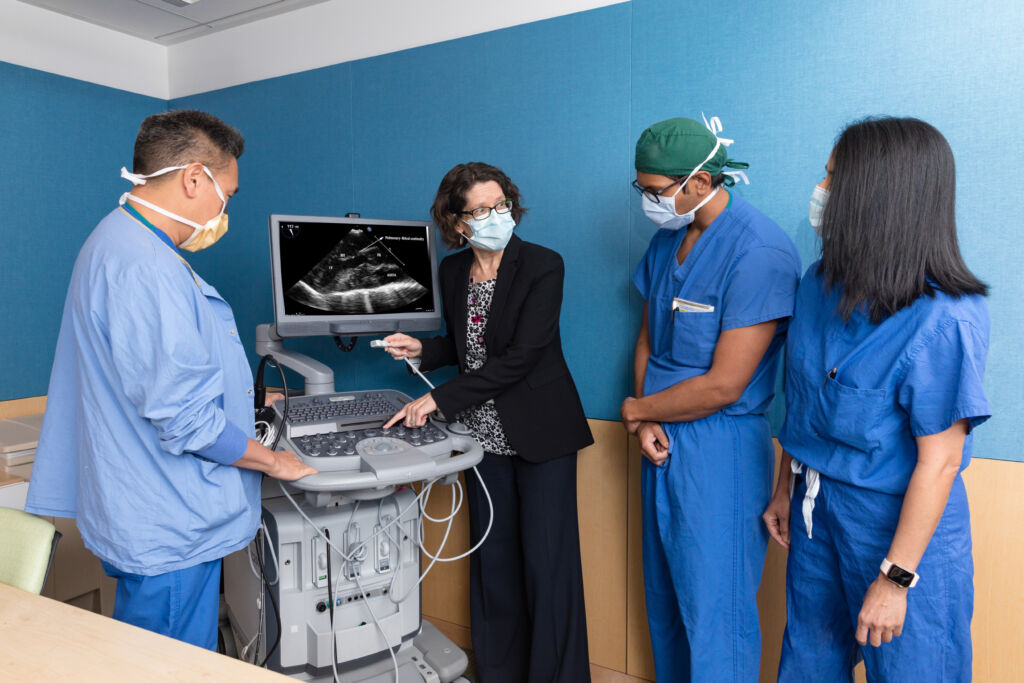
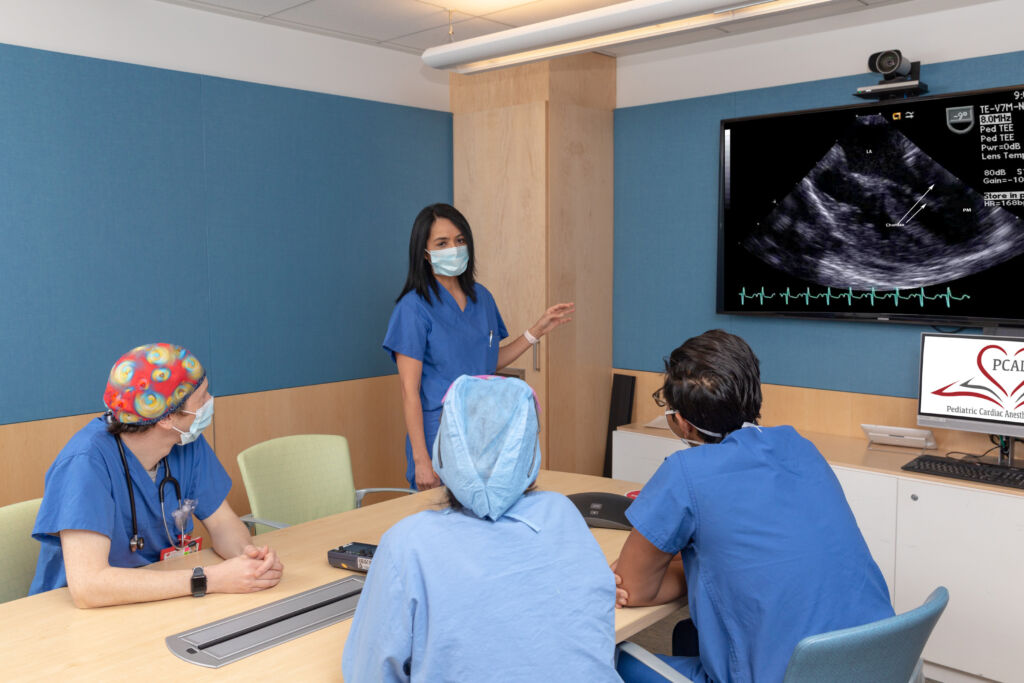
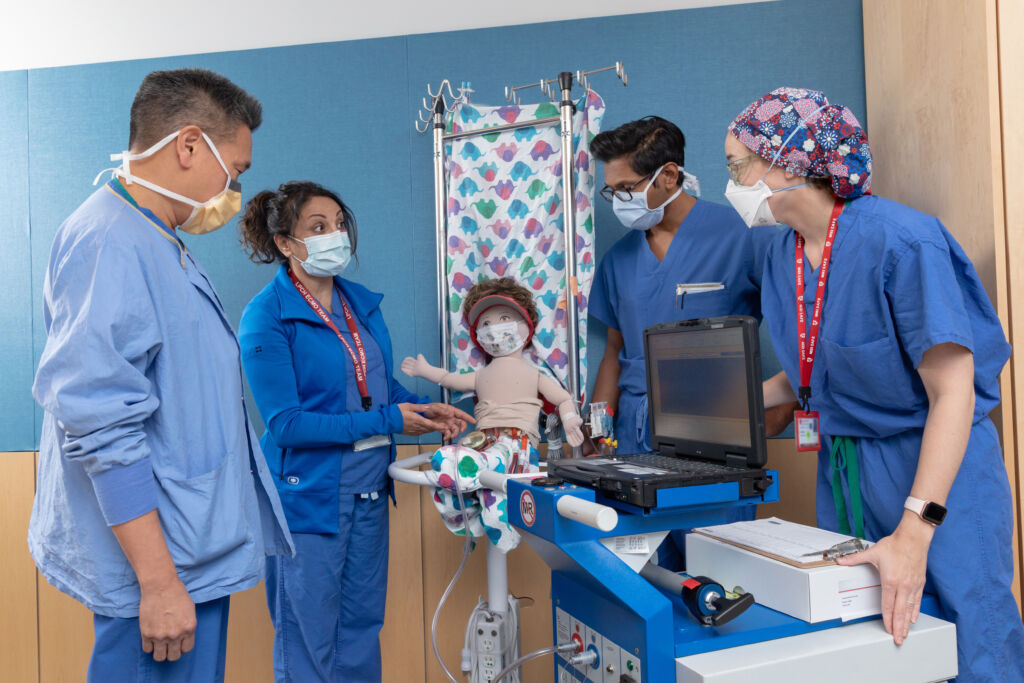
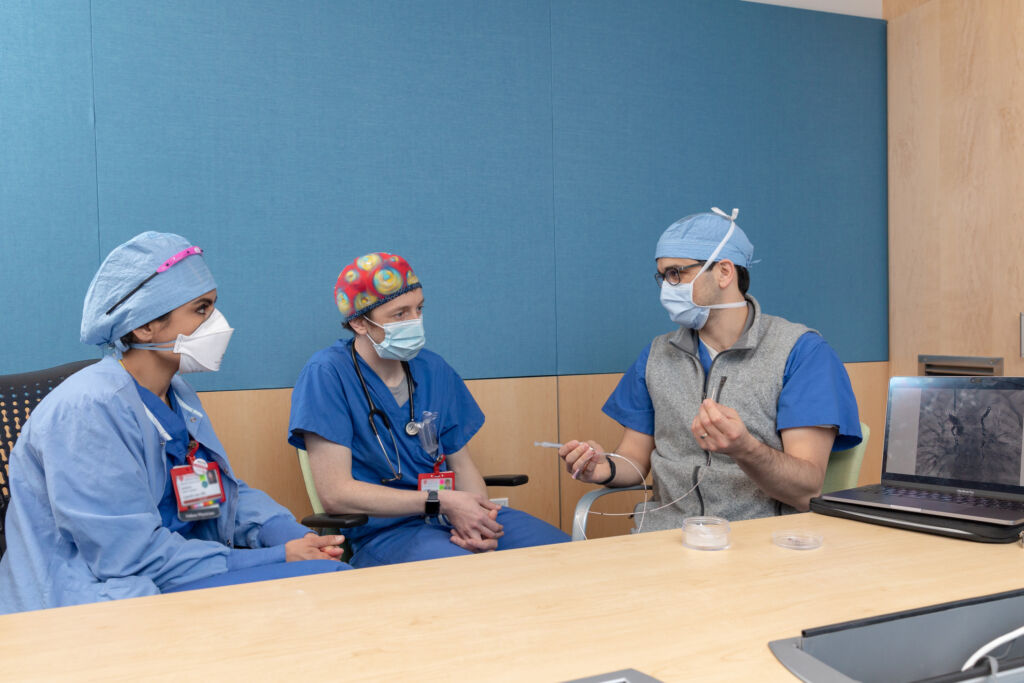
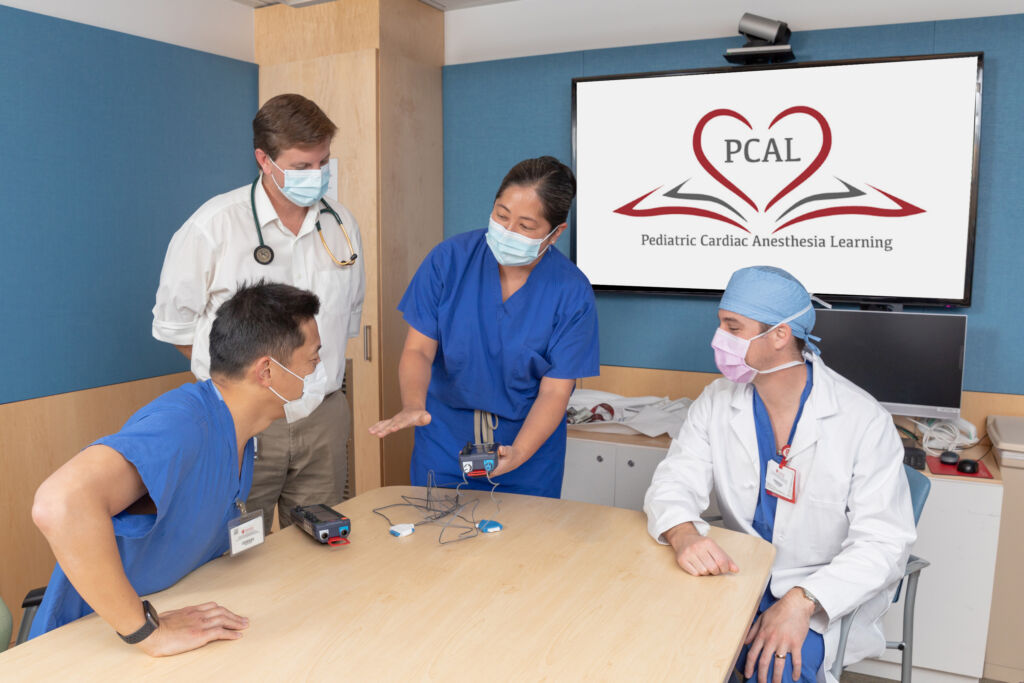
Contact Us
Please feel free to contact us with any questions you may have. We look forward to seeing you and welcoming you to Stanford.
- 650-723-5728






















